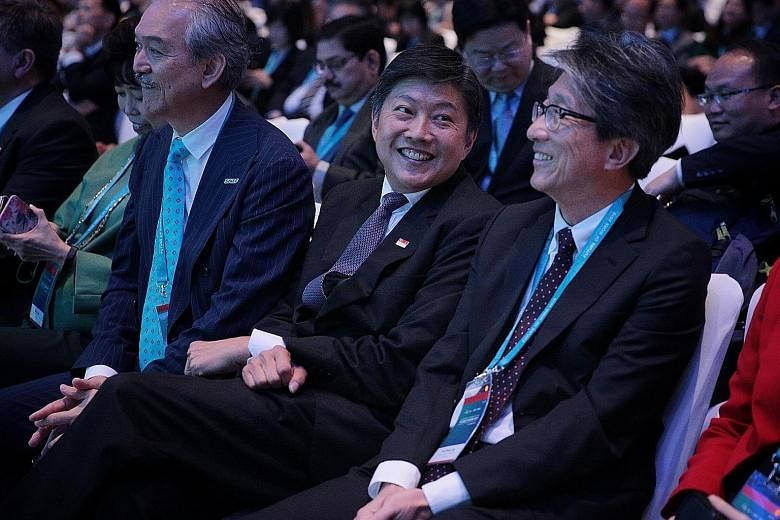Only two countries have designed a framework to help workers re-skill and remain employable, and they are Singapore and France, said Mr Alain Dehaze, chief executive of Swiss staffing company The Adecco Group.
Mr Dehaze, who is also a member of the International Labour Organisation's Global Commission on the Future of Work, was speaking at a panel discussion about building an agile and future-ready workforce.
Among other things, the role of the government, private sector and academia in this matter was discussed.
The panellists raised the need for companies to adopt a different perspective on training and reskilling workers, so as to encourage the process of change.
Mr Dehaze said that there was a need to "stop considering training, reskilling and upskilling costs as a cost, but instead as an investment", adding that it will likely cost less to reskill workers than to lay them off and hire new people.
Ms Teo Lay Lim, Accenture Singapore senior managing director for Asean, noted that specialisations could be broken down into skills, which may appear in more than one role and can therefore be repurposed if any "needs to be retired".
"This is the basis for agility and future relevance," she said.
Dr Bicky Bhangu, regional director for South-east Asia and the Pacific at Rolls-Royce, said that another way to help workers is to start engaging with them even before they enter the workforce - at the tertiary education level - such as through internships to help shape their perspectives on their careers.
The panellists also urged stakeholders not to forget about small and medium-sized enterprises, which may lack the resources to fend for themselves - unlike multinationals - but have much to offer, such as being more nimble in innovations, compared with large firms that have more processes.
At yesterday's Singapore Conference on the Future of Work, where the panel discussion took place, Singapore National Employers Federation president Robert Yap said "transformation is most effective when it is done pre-emptively... Businesses must not wait for threats or crises to emerge".
Mr Ng Chee Meng, secretary-general of the National Trades Union Congress, noted the importance of linking government policies with business requirements and workers' interests.
The aim is to have 1,000 company training committees in three years, helping workers to accept technology more readily and companies to reap the benefits of their investments.


